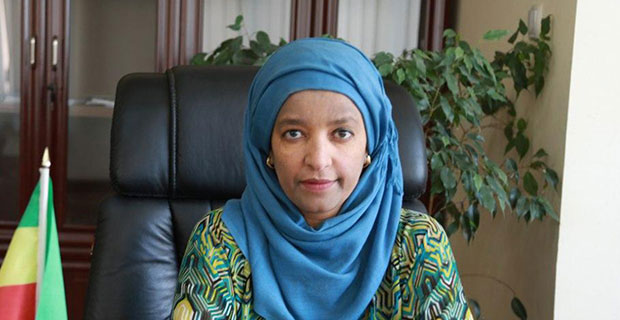
Radar | May 16,2020
Jun 18 , 2022
By Christian Tesfaye
The US Federal Reserve is not playing around anymore. After months of insisting that inflation is “transitory,” it has now declared war, firing what amounts to weapons of mass destruction at American economic activity. Last week, it raised federal funds interest rates by three-quarters of a percentage point, the biggest hike in decades. The federal funds rate, the interest rate at which banks borrow from one another from their reserve accounts, is a benchmark used to determine rates in the rest of the economy. When it goes up, so do interest rates for mortgages, bonds and credit cards.
The rate hike is the most serious move taken by the Federal Reserve under Jerome Powell, its chair, to combat inflation. Until now, there was a slight possibility that a “soft landing,” taming inflation without pushing the country into recession, could be realised. The gloves were off after the consumer price index (CPI) came in higher than expected last month. The Federal Reserve hiked by 0.75pc and indicated it might do so again. Most economists now expect a recession – two consecutive quarters of negative growth.
This is big for the US and the rest of the world. As the theme seems to be these days, it spells even more trouble for developing countries. A recession will mainly have short-term consequences. When the US is less resilient, there is less demand for exporters, and less remittances and tourism receipts will come from there. But the rate hikes will have long-term impacts, which may last as long as inflation persists.
A major headache is capital flight to rich countries. Over time, it will not be only the US increasing interest rates. It will also be other developed countries – if it is not to combat inflation, it will be to protect against capital flight from their own countries. The cost of capital will go up as the competition for loanable funds heats up. Without competitive economies, most developing countries will find it harder to attract capital for investment, infrastructure financing or economic development.
Debt servicing costs will also grow. High-interest rates will attract capital to countries such as the US. Investors will dump assets held in other countries to invest in the US because the returns will be higher. When capital rushes into a few countries, the currencies of those countries strengthen. If that country is the US, dollar-denominated debt becomes expensive to service, a headache that countries such as Ethiopia do not need.
Capital flight is already occurring and several developing countries are struggling with foreign currency problems (partly because the import of basic items has also become expensive). The examples are many and varied. The most talked about country in this instance is Sri Lanka, which is getting coverage. The country faces disaster and has already defaulted on its debt. Worse still, it has inspired a socio-political crisis. In Kenya, edible oil prices rose as a major producer cut production, citing a dollar shortage to import inputs. In Pakistan, officials called for a cut back on chai, a popular drink made from tea leaves (which are imported). In Ethiopia, black market dollar rates have gone up to record highs.
When so much is at stake, then, much of the world finds itself in a strange position of wishing Chair Powell a stroke of good luck on the war he is waging against inflation. He is on the front lines of the battle, commanding the forces of interest rates and open market operations against a formidable foe. At the same time, he is trying not to damage US economic growth. Let us hope he pulls off this juggling act for all our sakes.
PUBLISHED ON
Jun 18,2022 [ VOL
23 , NO
1155]


Radar | May 16,2020

Editorial | Jul 10,2021

Fortune News | Jun 05,2021

Radar | May 23,2020

Viewpoints | Aug 03,2024

Commentaries | May 10,2025

Radar | Apr 17,2021

Radar | Oct 23,2023

Fortune News | Jul 29,2023

Verbatim | Sep 06,2025

Photo Gallery | 173668 Views | May 06,2019

Photo Gallery | 163887 Views | Apr 26,2019

Photo Gallery | 153910 Views | Oct 06,2021

My Opinion | 136547 Views | Aug 14,2021
Editorial | Oct 11,2025

Dec 22 , 2024 . By TIZITA SHEWAFERAW
Charged with transforming colossal state-owned enterprises into modern and competitiv...

Aug 18 , 2024 . By AKSAH ITALO
Although predictable Yonas Zerihun's job in the ride-hailing service is not immune to...

Jul 28 , 2024 . By TIZITA SHEWAFERAW
Unhabitual, perhaps too many, Samuel Gebreyohannes, 38, used to occasionally enjoy a couple of beers at breakfast. However, he recently swit...

Jul 13 , 2024 . By AKSAH ITALO
Investors who rely on tractors, trucks, and field vehicles for commuting, transporting commodities, and f...

Oct 11 , 2025
Ladislas Farago, a roving Associated Press (AP) correspondent, arrived in Ethiopia in...

Oct 4 , 2025
Eyob Tekalegn (PhD) had been in the Governor's chair for only weeks when, on Septembe...

Sep 27 , 2025
Four years into an experiment with “shock therapy” in education, the national moo...

Sep 20 , 2025
Getachew Reda's return to the national stage was always going to stir attention. Once...

Oct 12 , 2025
Tomato prices in Addis Abeba have surged to unprecedented levels, with retail stands charging between 85 Br and 140 Br a kilo, nearly triple...

Oct 12 , 2025 . By BEZAWIT HULUAGER
A sweeping change in the vehicle licensing system has tilted the scales in favour of electric vehicle (EV...

Oct 12 , 2025 . By NAHOM AYELE
A simmering dispute between the legal profession and the federal government is nearing a breaking point,...

Oct 12 , 2025 . By NAHOM AYELE
A violent storm that ripped through the flower belt of Bishoftu (Debreziet), 45Km east of the capital, in...